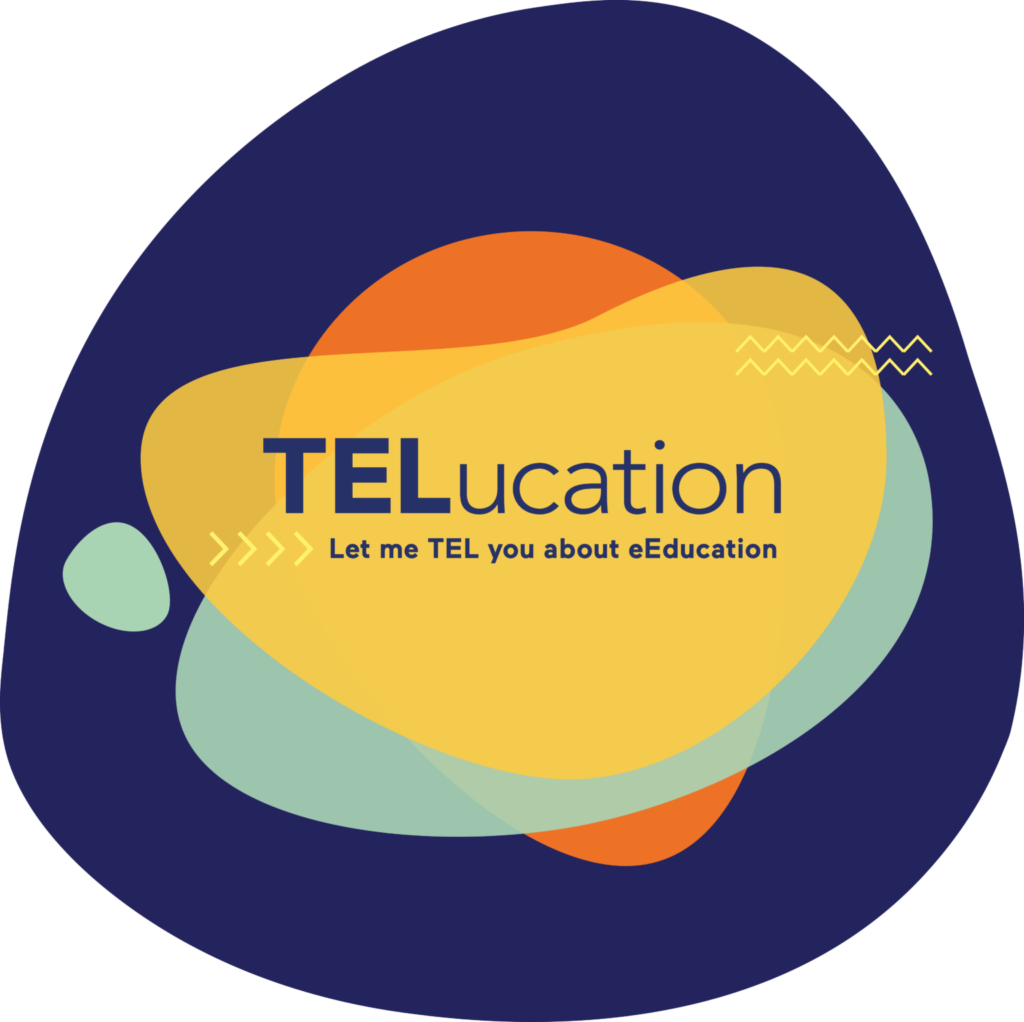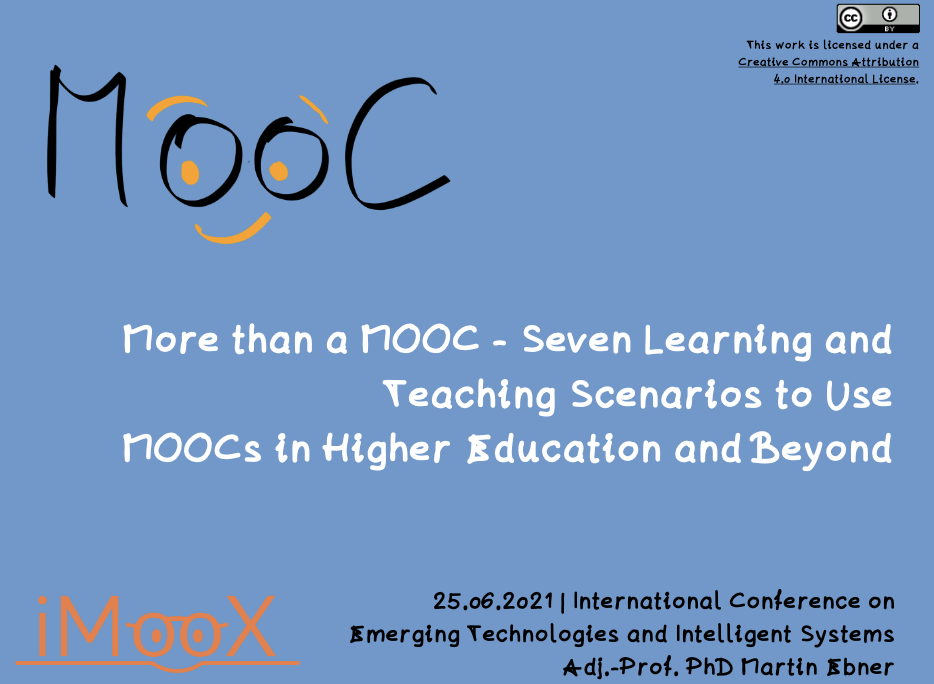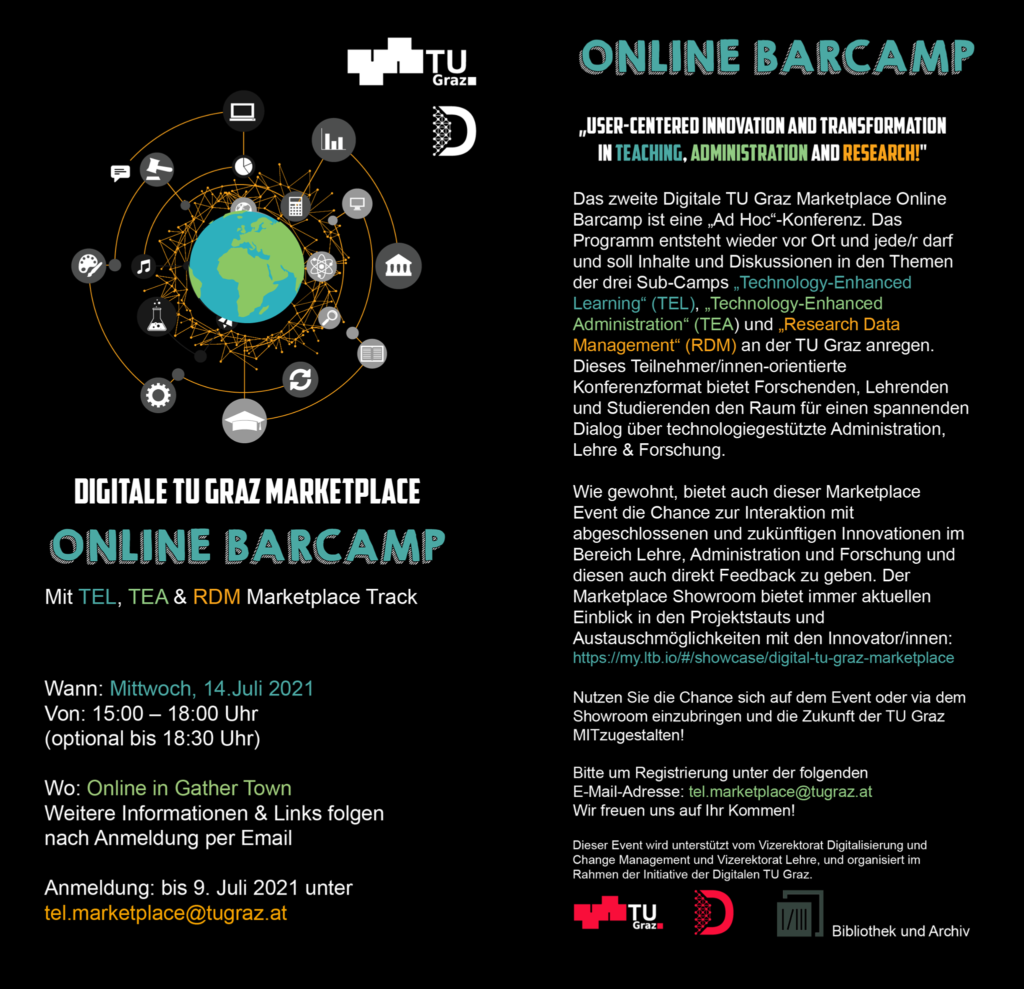We are happy that we did a poster presentation at this year EMOOCS21 about „Open Tools and Methods to Support the Development of MOOCs: A Collection of How-tos, Monster Assignment and Kits„.
Abstract:
There are a plethora of ways to guide and support people to learn about MOOC (massive open online course) development, from their first interest, sourcing supportive resources, methods and tools to better aid their understanding of the concepts and pedagogical approaches of MOOC design, to becoming a MOOC developer. This contribution highlights tools and methods that are openly available and re-usable under Creative Commons licenses. Our collection builds upon the experiences from three MOOC development and hosting teams with joint experiences of several hundred MOOCs (University of Applied Sciences in Lübeck, Graz University of Technology, University of Glasgow) in three European countries, which are Germany, Austria and the UK. The contribution recommends and shares experiences with short articles and poster for first information sharing a Monster MOOC assignment for beginners, a MOOC canvas for first sketches, the MOOC design kit for details of instructional design and a MOOC for MOOC makers and a MOOC map as introduction into a certain MOOC platform.
[Poster @ ResearchGate]
Referenz: John Kerr, Anja Lorenz, Sandra Schön, Martin Ebner, Andreas Wittke (2021) Open Tools and Methods to support the development of MOOCs: A Collection of How-tos, Monster Assignment and Kits. Poster Presentation at the EMOOCs Conference 2021, DOI: 10.13140/RG.2.2.16586.08642





